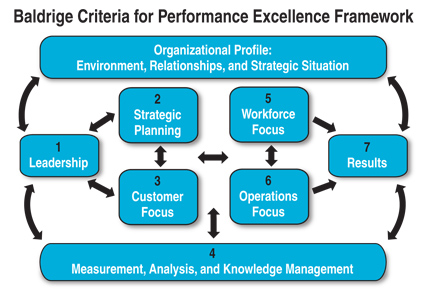- FHCQ Foundation for Health Care Quality
- COAP Care Outcomes Assessment Program
- Spine COAP Care Outcomes Assessment Program
- SCOAP Care Outcomes Assessment Program
- OBCOAP Care Outcomes Assessment Program
- CBDR
- Smooth Transitions
- WPSC Patient Safety Coalition
- Bree Collaborative Bree Collaborative
- Health Equity Health Equity
- Admin Simp
- Contact Us
PROMOTING SAFETY & QUALITY IN SKILLED NURSING & ASSISTED LIVING FACILITIES

PROMOTING SAFETY & QUALITY IN SKILLED NURSING & ASSISTED LIVING FACILITIES
by Elena Madrid, Director of Regulatory Affairs, Washington Health Care Association
How can a state organization help promote patient safety for elderly communities? Elena Madrid shares her experiences from inside the WHCA and the work they do to sustain quality in these indispensable facilities.
About the WHCA
The Washington Health Care Association (WHCA) is a statewide non-profit organization representing over 400 assisted living and skilled nursing facilities. WHCA’s mission is to promote quality long-term and post-acute health care and services, while serving as an advocate for providers, staff, and the patients and residents they care for. Association members provide health and personal care, social support and housing to 25,000 frail, elderly, or disabled Washingtonians each day. About 25,000 employees work for member facilities.
Through its leadership and engagement with federal and state quality improvement initiatives, WHCA and its members are committed to healthy, affordable, and ethical long-term care. In keeping with the continuous evolution of long-term healthcare, our quest for sustained quality improvement in this arena is achieved through active engagement with all stakeholders.
Applying the Baldrige Performance Excellence Framework
The Washington Health Care Association works in conjunction with America Health Care Association (AHCA)/National Centers for Assisted Living (NCAL) to focus on its Quality Initiatives. Our current focus is challenging members to apply the Baldrige Performance Excellence Framework, an approach which was the foundation of the 2015-2018 AHCA Quality Initiative, to meet measureable targets in eight areas with three key priorities focused on improvement in:
- organizational success
- short-stay/post-acute care
- long-term/dementia care
WHCA also works directly with our assisted living and skilled nursing facility members to pursue the AHCA/NCAL National Quality Award Program. The program provides a pathway for providers of long-term and post-acute care services to journey towards performance excellence. It is based on the core values and criteria of the , employing the above framework.
Member facilities may apply for three progressive levels of awards: Bronze—Commitment to Quality, Silver—Achievement in Quality, or Gold—Excellence in Quality. In 2015, six Washington WHCA LTC facilities received the AHCA/NCAL Silver Quality Award and 29 received the Bronze Quality Award, placing Washington in the top five states in the nation for Bronze Awards.
Target Goals: Reducing Readmissions and Antipsychotic Use
One of our target goals is to safely reduce the number of hospital readmissions within 30 days during a skilled nursing center stay by an additional 15% or achieve and maintain a low readmit rate of 10% by March 2018. To accomplish this goal, WHCA assists members through education in the form of conferences, webinars, and written resources. We also serve as support through consultation on regulatory requirements for both assisted living and skilled nursing facilities.
Another target goal relates to safely reducing off-label use of antipsychotics. Studies have shown that antipsychotic medications provide only a small benefit for a limited set of individuals with dementia, but pose a large risk of adverse events (Ballard, Waite, & Birks, 2006; Maher, et al., 2011). In 2012, the CMS launched the national Partnership to Improve Dementia Care in Nursing Homes, which AHCA/WHCA supported, setting the goal of a 15% reduction in use of off-label antipsychotics. WHCA was able to achieve this this goal at the end of 2014, in part by utilizing guest speakers for webinars, conferences, and other events.
In September 2014, CMS along with AHCA and others set new goals, still in motion today, to continue reducing the use of antipsychotic medications. The target is to safely reduce the off-label use of antipsychotics in long-stay nursing center residents by an additional 15% by December 2016. WHCA supports and assists our members to reach these quality goals through provision of resources and ongoing educational opportunities. As an example, two webinars conducted last month touched on this goal – one from Sharon Eloranta entitled Sepsis, Readmissions, and Skilled Nursing Facilities, and another from Sarah Kneisler entitled MCI (Mild Cognitive Impairment) Today, Dementia Tomorrow: Improving Clinical Strategies.
About the Author

Elena Madrid joined WHCA in 2014 as the Director of Assisted Living, Residential Care, and Quality after nearly 16 years with DSHS-Residential Care Services where she was a nursing facility surveyor, complaint investigator, and a field manager responsible for the supervision of the licensors, surveyors, and complaint investigators for assisted living, skilled nursing facilities, and adult family homes in eastern Washington. Elena has also worked as a director of nursing in both assisted living and skilled nursing. She is a registered nurse and brings a wealth of knowledge regarding long term care requirements and the regulatory issues affecting long term care providers. She serves as a regulatory and clinical support person for assisted living and skilled nursing members. Elena spends much of her time focused on assisted living quality and support. Her background in both assisted living and skilled nursing will provide a great resource to all of WHCA members.
Recent Posts
- Advancing Patient Safety with Communication and Resolution Programs
- TakeCharge This Patient Safety Awareness Week: 5 Steps to Safer Healthcare
- Stigma & Bias in Healthcare: The Obstacles, Consequences and Changes Needed
- Agility in Crisis: How The Everett Clinic responded to COVID-19
- Collaboration over Competition: How Pediatric Hospitals Can Thrive When They Work Together



